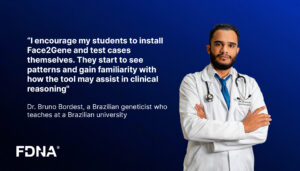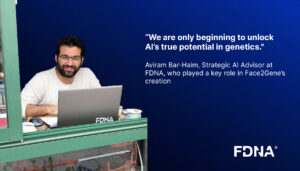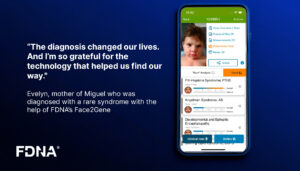April 17 | 2018
UP WORTHY SCIENCE
“Healthcare professionals and medical technology companies hope that facial recognition software will help prevent families from facing these difficult disruptions by improving the accuracy and ease of diagnosing genetic disorders. Traditionally, doctors diagnose these types of conditions by identifying unique patterns of facial features, a practice called dysmorphology. Trained physicians can read a child’s face like a map and detect any abnormal ridges or plateaus—wide-set eyes, broad forehead, flat nose, rotated ears—that, combined with other symptoms such as intellectual disability or abnormal height and weight, signify a specific genetic disorder. Facial recognition technology is trying to take some of the guesswork out of this process. Software such as the Face2Gene app use machine learning to compare a picture of a patient against images of thousands of disorders and come back with suggestions of possible diagnoses.”
The article highlights Face2gene an innovative app that uses AI technology to expedite the diagnosis of extremely rare genetic disorders by analyzing photos. By capturing and examining facial features, the app can identify subtle phenotypic markers indicative of these conditions. FDNA‘s powerful decision support tool significantly improves the speed and accuracy of diagnosing rare disorders, offering a lifeline to patients who often face prolonged diagnostic odysseys. This advancement highlights the potential of integrating AI with medical diagnostics to bring critical insights to genetic healthcare, ultimately transforming patient outcomes and personalized treatment plans.


